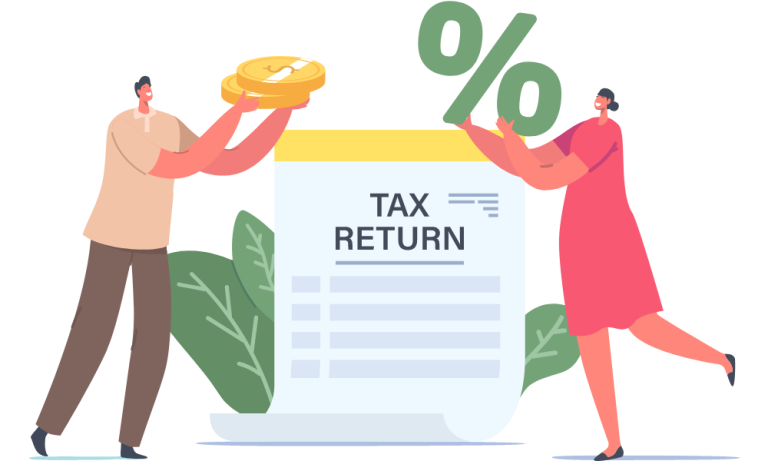The 11 Most Important Legal Requirements Every Online Business Owner Needs To Know

As an online business owner, it’s important to be familiar with the various laws that govern internet activity. Ignorance of the law is not an excuse, so it’s crucial to be well-informed about the legal landscape in which you operate.
1. Importance Of International Online Business Laws
As the world becomes increasingly connected through the internet, the number of businesses doing international online transactions is also growing. It is therefore important for business owners to be aware of the various international online business laws that apply to them.
Businesses that operate in more than one jurisdiction should be aware of the different laws that apply to them in each country and take steps to ensure that they are compliant with all applicable laws. Failing to do so can result in penalties, including fines and imprisonment.
2. Four Common Business Structures To Choose From For Online Businesses
When starting an online business, there are four common business structures to choose from: proprietorship, partnership, company, and LLP. Each structure has its own set of benefits and drawbacks, so it’s important to understand the differences before making a decision. This decision will have a big impact on your taxes, liability, and how much paperwork you’ll have to do.
Here’s a quick overview of the four most common types of business structures:
Sole Proprietorship is the simplest business structure and is ideal for businesses that are just starting out. There are no registration or filing fees, and proprietors have complete control over their business. However, proprietors are personally liable for any debts or liabilities incurred by the business.
A partnership is similar to a proprietorship but offers more protection for the business owner. There is no registration or filing fee, and partners have complete control over their business. However, partners are personally liable for any debts or liabilities incurred by the business.
Limited Liability Company (LLC) offers some protection from personal liability, similar to a corporation. LLCs are easy to set up and maintain and offer more flexibility than a corporation. There is a small registration fee, and owners have limited liability for the debts and liabilities of the company.
Corporation offers the most protection from personal liability. Corporations are more complex to set up and maintain than other types of businesses but offer owners limited liability for the debts and liabilities of the company. There is a small registration fee, and corporations must file annual reports with the state.
3. Why You Should Open A Bank Account For An Online Business

Opening a bank account for your online business is important for a few reasons. There are many benefits of setting up a business bank account for your online business.
Here are some key reasons:
1. It establishes your business as a separate legal entity from yourself. It separates your personal and business finances, making it easier to track your business expenses and income.
2. It builds your business credit history, which can help you when you need to borrow money or apply for a business loan in the future.
3. It makes it easier to receive payments from customers, as you can simply provide them with your bank account details.
4. It helps you stay organized and keep track of your business finances.
5. It makes it easier to collect payments, make deposits, and take other actions related to your business finances.
4. General Data Protection Regulation
The General Data Protection Regulation (GDPR) went into effect on May 25, 2018 and strengthens the EU’s current data protection framework. The GDPR replaces the 1995 Data Protection Directive and regulates the handling of personal data by controllers and processors within the EU.
The GDPR applies to any company that processes the personal data of EU citizens, regardless of where the company is located. Companies that process the personal data of EU citizens must comply with the GDPR unless they can demonstrate that they meet certain conditions.
5. Why Is Intellectual Property (IP) Important In Any Online Business
Intellectual property (IP) is one of the most important aspects of any online business. As an online business, it is important to protect your intellectual property. This includes your website design, the content on your website, your trademarks, and even the way you do business.
It encompasses everything from trademarks and copyrights to patents and trade secrets. IP is what protects your business’s unique ideas and allows you to profit from them.
If you don’t protect your IP, someone else can copy your ideas and products and put you out of business. If someone infringes on your IP, it can be costly and time-consuming to take legal action. That’s why it’s important to have a good understanding of IP law and to take steps to protect your intellectual property.
6. The Importance Of Permits And Licenses In Online Businesses

Licenses and permits are an often overlooked, but nonetheless crucial, part of online business. Nearly every type of business needs some form of license or permit in order to operate, and the penalties for not having the appropriate paperwork can be steep.
For online businesses, it’s important to familiarize yourself with the licenses and permits required in your state or country. Ignorance is not an excuse, and if you are caught running an unlicensed business, you could face fines, imprisonment, or both.
When starting an online business, there are a few permits and licenses you will need to acquire before you can begin operating. These are important because they ensure that your business is in compliance with state and federal regulations.
7. Why Is PCI Compliance Important For Online Businesses
PCI compliance is important for any business that processes, stores, or transmits credit card information because it protects customers’ payment information. When a business is PCI compliant, it has met the requirements set forth by the Payment Card Industry Security Standards Council. These requirements help to ensure that customer payment data is protected.
The Payment Card Industry Data Security Standard (PCI DSS) was created to help organizations protect customer payment data.
If a business is not PCI compliant, it could face significant financial penalties. In addition, its customers could experience financial loss if their payment information is compromised. Therefore, it is essential for businesses to protect their customers by becoming PCI compliant. Non-compliance can result in hefty fines, loss of customers, and even criminal charges.
There are six primary requirements of the PCI DSS. They are:
1. Install and maintain a firewall configuration to protect cardholder data
2. Do not use vendor-supplied defaults for system passwords and other security parameters
3. Protect stored cardholder data
4. Encrypt transmission of cardholder data across open, public networks
5. Use and regularly update anti-virus software
6. Develop and maintain secure systems and application
8. Why Do We Need 'Terms And Conditions' And 'Privacy Policy' Pages On Our Websites
Although almost all customers will skip reading these pages when they purchase things online, it still is important for you to set clear and proper terms and conditions and privacy policies on your website. This will help protect you and your customers in the event of any problems or misunderstandings.
A ‘terms and conditions’ (T&C) page is a legal document that is usually presented to a website user when they first visit the site. It outlines the terms and conditions of using the site, as well as the user’s rights and responsibilities. T&C pages are essentially contracts between you and your users. They set out the rights and responsibilities of both parties, and help to protect you from legal action.
A privacy policy is a document that outlines how a website collects, stores, and uses personal information. They are an important way of protecting your users’ data and complying with data protection laws. It is also usually presented to website users when they first visit the site.
Your ‘T&C’ and ‘privacy policy’ pages should include all the information your customers need to know about how you will use their data, and what protections you have in place.
THINKING OF STARTING AN ONLINE BUSINESS?
Bring Your Business Online With A Customized WordPress Website!
9. Register Your Business In Your Country Of Residence
When starting a business, it’s important to consider what type of company you want to register. There are many different types of company structures, and each has its own benefits and drawbacks.
The most common company structures are sole proprietorships, partnerships, and corporations. Each one has its own specific requirements for registration. For example, in the United States, sole proprietorships can be registered with the state government, while partnerships must be registered with the state and the federal government.
You will need to register your business with the country of the residence tax authority. This process can vary in time and complexity, so be sure to research the specific requirements in your country. Generally, you will need to provide your business name, registered address, and contact information. You may also be required to provide information about the company ownership and management.
If you are a business owner, it’s important to research the requirements for registering your business in your country of residence. This will ensure that you are compliant with all legal requirements and can avoid any potential penalties.
This is important for a few reasons:
1. It makes it easier to do business in your own country.
2. It can help you protect your personal assets.
3. It can help you with tax planning.
4. It can help you with marketing and networking.
5. It can help you with employee recruitment and management.
10. File Tax Returns And Pay Taxes

There are a lot of people out there who dread the task of filing their taxes. They view it as a necessary evil, something that they have to do in order to keep the government happy.
But it doesn’t have to be that way! Filing your taxes can actually be a very liberating experience if you know how to do it correctly. In fact, there are a number of online services that can help you file your taxes quickly and easily.
The first step is to gather all of your paperwork. This includes your W-2, 1099s, and any other documentation related to your income or deductions. Once you have everything together, you can start filling out your tax return. The easiest way to do this is to use a tax preparation software program.
There are many different tax preparation programs available, so you should be able to find one that meets your needs. Most of these programs are easy to use, and they will guide you through the process of filing your return.
If you choose to file your return by hand, you can find printable versions of the forms on the IRS website. However, it may be more difficult to complete the return without assistance, and there is a greater chance for mistakes.
Your business will need to file tax returns and pay any required taxes each year. The specifics of this process will depend on your country of residence, but you can expect to pay income tax, value-added tax (VAT), and other applicable taxes. Be sure to research the specific requirements in your country so that you can comply with all regulations.
11. Stay Up To Date On Regulations
Business owners must stay up to date on the latest regulations that could impact their industry. Ignorance of the law is not an excuse, so it’s important to be proactive in seeking out information on any new regulations that could affect your business.
There are a few different ways to stay up to date on regulations. The most obvious is to read the news, but you can also sign up for email alerts or follow government agencies on social media. You can also find resources like legal updates or webinars that can help you stay informed.
The government is always coming out with new rules and regulations, and it can be hard to keep track of them all. However, if you don’t stay up to date, you could face some serious penalties.
Here are a few resources that can help you stay up to date on small business regulations:
-The Small Business Administration website
-The Federal Trade Commission website
-The Department of Labor website
As your business grows, it will become increasingly important to stay up to date on any new regulations that may affect your industry. Regulations can change quickly, so it’s important to be proactive in monitoring any changes that could impact your business.
Conclusion
If you’re thinking about starting your own online business, this is the guide for you. It covers everything from choosing a business idea to set up your website. Plus, we offer a range of website subscription plans that make it easy to get started. Sign up today and start building your online business.
THINKING OF STARTING AN ONLINE BUSINESS?
Bring Your Business Online With A Customized WordPress Website!

